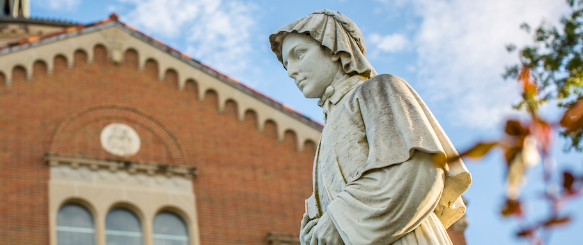Saint Elizabeth Ann Seton: Educational Legacy
Saint Elizabeth Ann Seton is a name synonymous with pioneering education and nurturing heart. As the first native-born American saint, she made significant strides in establishing the Catholic education system in the United States. Her dedication to education, faith, and compassion continues to inspire educators and parents alike, making her legacy particularly relevant today.
Innovator in Catholic Education
In the early 19th century, Elizabeth set the foundation for a new educational framework in America. After converting to Catholicism in 1805, she recognized the need for quality education rooted in faith. In 1809, she founded the first parochial school in the United States in Baltimore, Maryland. Her approach was practical and innovative—emphasizing moral development, academic excellence, and the importance of community involvement. This pioneering effort paved the way for the establishment of numerous Catholic schools across the country, shaping a vital aspect of American education.
Formation of the Sisters of Charity
Elizabeth’s vision extended beyond the classroom; she founded the Sisters of Charity in 1809. This religious community dedicated itself to serving the educational needs of children, particularly those from underprivileged backgrounds. The Sisters of Charity played a crucial role in expanding educational access, and Elizabeth’s emphasis on teaching not only academics but also virtues like honesty and kindness became integral to their mission. Her transformative influence on the Sisters ensured that their reach would be felt in both urban and rural communities, fostering an enduring legacy of service and education.
A Legacy of Compassion and Inclusion
What sets Elizabeth apart in the educational landscape is her unwavering commitment to compassion and inclusion. She believed that education should be accessible to all, regardless of socio-economic status. During a time when societal norms often excluded marginalized groups, she advocated for the education of girls and lower-income students. Her teachings emphasized the importance of nurturing the whole person—mind, body, and spirit. This holistic approach is still reflected in many modern educational philosophies, ensuring that her legacy lives on in today’s classrooms.
Conclusion
Saint Elizabeth Ann Seton’s educational legacy resonates powerfully in today’s world, reminding us of the importance of compassion, inclusivity, and innovative thinking in education. As we reflect on her contributions, we are encouraged to uphold her values within our own communities, fostering an environment where everyone has the opportunity to learn and grow. To dive deeper into her life and teachings, consider exploring additional resources or visiting a local Catholic school that carries forward her mission.

